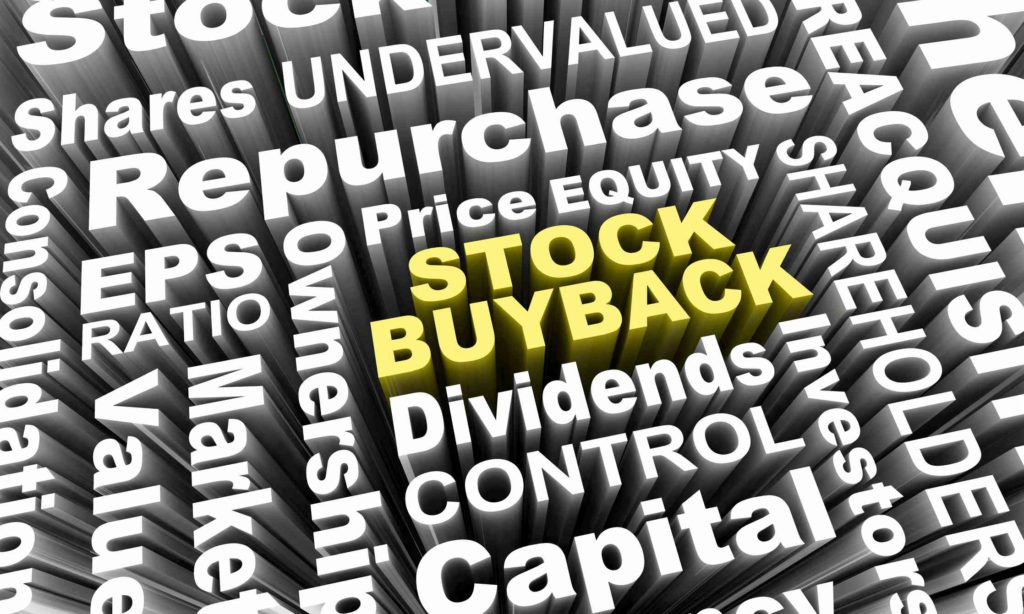Do you know why companies do buyback?

To understand the whole story, let’s first understand what is Buyback.
In simple terms, Buyback of share means Re-acquisition by the company of its own share and return money to the shareholder.
Now, why does the company do that? – to reward shareholders.
In India, most IT companies are promoters managed (this doesn’t mean there’s a doubt on their corporate governance) and used to fund their other ventures.
A. TCS (Owned by Tata’s, to fund their ventures ranging from salt to steel)
B. Tech Mahindra (Owned by Mahindras, to fund their ventures ranging from automobile to hospitality)
C. Wipro (owned by Azim Premji, to fund their CSR Arm and startup/investment arm Premji Invest)
How does buyback create wealth for Shareholders?
A buyback benefits shareholders by increasing the percentage of ownership held by each shareholder by reducing the total no. of outstanding shares.
For example, if the company has 100 Shareholders and earned Profit during the year – Rs. 100, P/E ratio = 10
So Earning per share = Rs.100/100 Shareholders = Rs. 1 per share,
Market Price Per Share = EPS *PE = Rs. 1 * 10 = Rs. 10
Now if the company buy back 20 of its share,
Then EPS after buyback = 100/80(100-20 buyback) = Rs. 1.25 per Share,
Market Price after Buyback = EPS * PE = 1.25 * 10 = Rs. 12.5
Buyback leads to an increased price by Rs. 2.5(12.5-10) per share.
As usually, IT Companies do buyback at a higher price than the current market price. So as investors get more value for their shares in the buyback route, share price generally moves in an upward direction. But in the case of dividend, there is no such price movement seen.
Now let’s understand what type of companies do Buyback.
Companies that are Cash-rich and have low debt (Mostly IT Companies like Tata Consultancy Services, Infosys, Wipro, etc.) pay cash to their shareholders via buyback route.
Let’s take a deep dive into the concept and understand why Buyback, and not Dividend.
The main logic behind the whole idea lies with the taxation regime on dividend and Buyback in India.
As per the recent amendment in budget 2020, Domestic companies are not required to pay Dividend distribution tax. The dividend is taxable in the hands of shareholders like FD.
In the case of Buy-Back, for a company announcing buyback, the tax liability is of 23.296% of distributed income and shareholders pay no tax when they surrender shares for Buy-Back, No Capital Gain, or any other tax other than STT.
Now, let’s understand the whole thing from TCS’s perspective with a cash balance of 43,000 Cr.
Either it can pay a dividend or use the money to repurchase its share. Let’s see the options:
| Dividend vs. Buy Back | ||
| Tata Consultancy Services | Dividend | Buy Back |
| Cash available for distribution | 20,000 Cr | 20,000 Cr |
| Tax Rate | 0% | 23.296% |
| Tax Amount | 0 | 3,780 Cr |
| Net distribution to the shareholder(20000/1.23296) | 20,000 Cr | 16,220 Cr |
| Shareholder(Tata Sons) | Dividend | Buy Back |
| Net Amount Received from Co. | 20,000 Cr | 16,220 Cr |
| Tax Rate(if Shareholder in highest slab rate)* | 35.88% | 0% |
| Tax Amount | 5,281 Cr | 0 |
| Total Amount Received to Shareholder net of tax(20,000/1.3588) | 14,718 Cr | 16,220 Cr |
| Overall Difference | 1,502 Cr | |
That’s why Buyback is cheaper than Dividend.
But there is another regulatory regime. Companies act requires no company can do two or more buybacks within one year of the previous buyback. Also, they need to maintain some critical financial ratios within a specific range.
So obviously dividends are also famous whether ordinary, interim or special. They don’t have many options to utilize their cash. Hence ends up rewarding their shareholders, generally through any of these two routes.
Subscribe to our Newsletter to get exciting content delivered to your Mailbox!






This is exactly I have been searching for. Finally I got the answer. Apt analysis….!!
Thanks…for appreciation
Very good article sir. Looking forward to more such informative articles
Sure… Thanks for appreciation